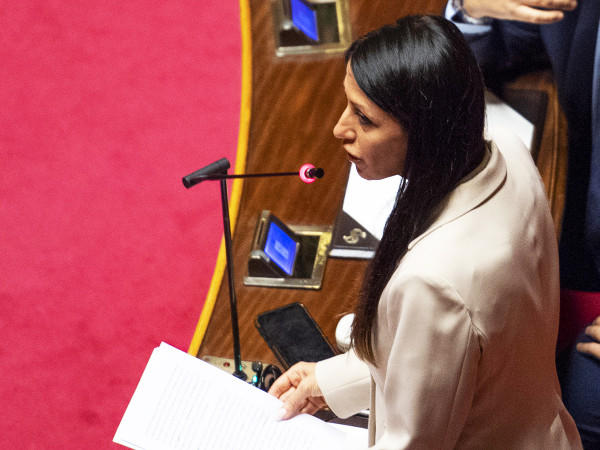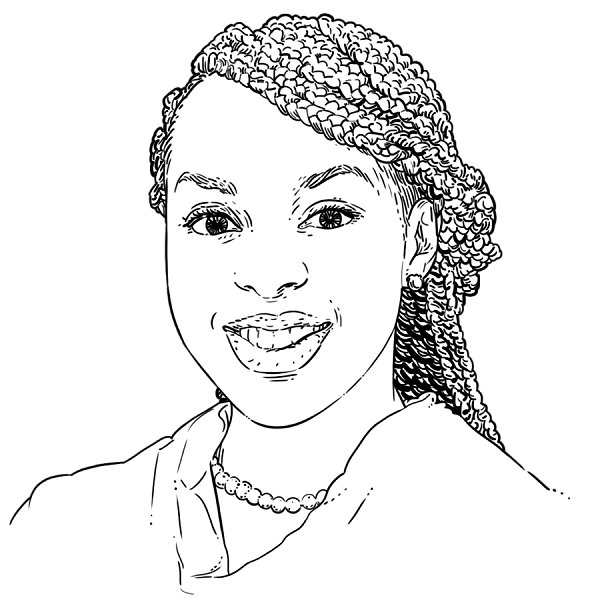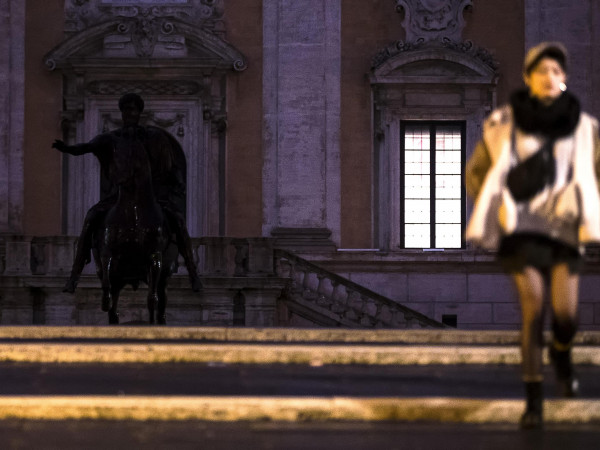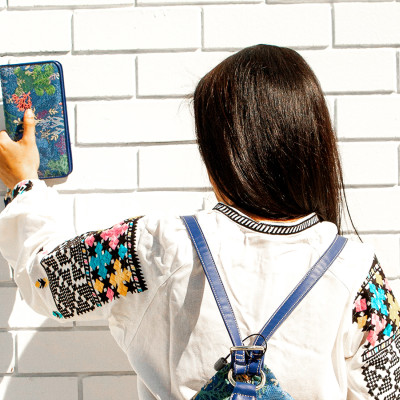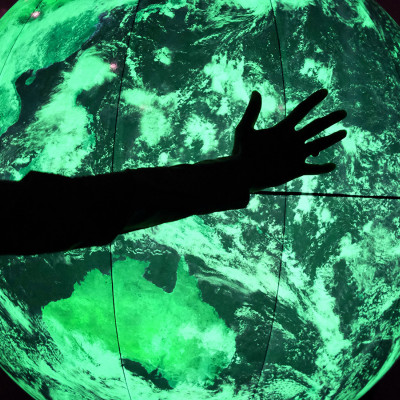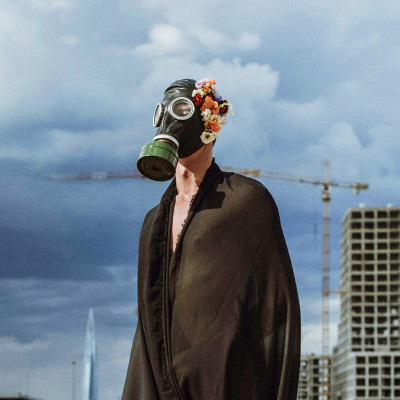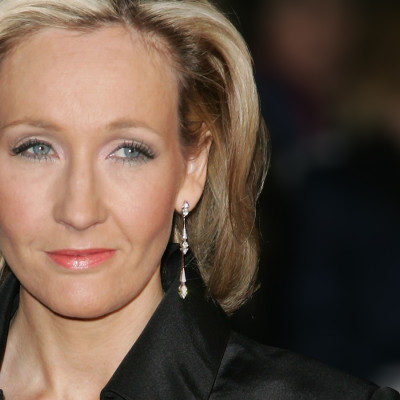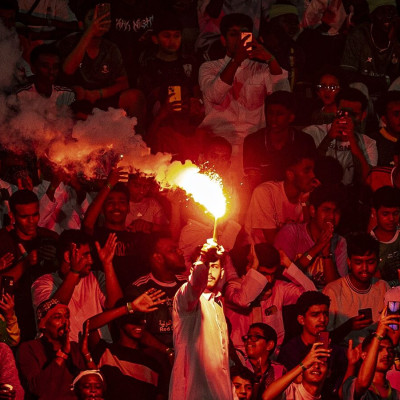Patricia Janet Scotland, an exclusive interview
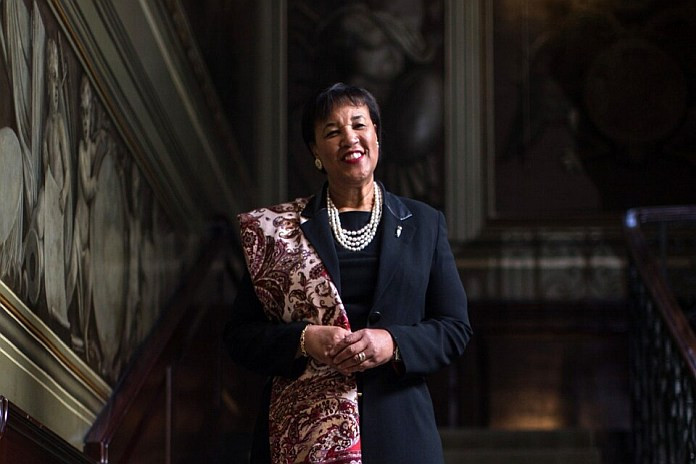
Your personal biography is full of noteworthy first-time achievements for women. You are the youngest first black woman to be appointed as a Queen’s Counsel, the first black woman to be appointed Deputy High Court Judge, Recorder, and Master of Middle Temple, and you are the first woman to be appointed as Attorney General. Have these triumphs shaped your responsibilities as the Secretary-General of the Commonwealth?
I think my past experience informed my time as a Secretary-General and probably meant that it prepared me for the number of challenges that we face as the Commonwealth.
I have always been a Commonwealth citizen. I was born on the beautiful island of Dominica, I have got an Antiguan father, I was brought up in the United Kingdom, and I have worked in and with people from all over our Commonwealth.
So I believe all those elements prepared me for the sort of challenges that we now face as a Commonwealth family. I think I can see the synergy that’s there. All the roles I have had have come as a slight surprise. When I qualified as a barrister at 21, I did not think, “Oh, now I will become the youngest in this or the first at that.
That was never within my contemplation, but it just is what happened.
You have constantly shown your dedication toward eliminating Violence against women and girls (Vawg), from pioneering the introduction of the Domestic Violence Crime and Victims Act (2004) to the recent launch of the Commonwealth tool to measure Vawg. Why are gender equality and the elimination of Vawg so close to your heart?
I think it’s because I grew up in a very loving, caring family of 7 brothers and 5 sisters, of which I am one. I am my parents’ 10th child. I had a remarkable father and a very loving mother. And so, when I first started to see and hear about Vawg, it was not something I had experienced personally. But, it is something I found, therefore, deeply shocking, because I believe the only reason I achieved what I have achieved, is because I was well-loved. Both by my father and my mother.
I hero-worshiped my father and I thought my brothers were the best thing since sliced bread. I had the thought of how I would have coped if that was not my reality, for example, if I had been either bullied, shouted at, belittled, discriminated or if I hadn’t been told since the moment I was born that I could do anything and that there was no difference between me and anyone else. It had never crossed my mind that there was a difference between what I could do as a girl and what my brothers could do as boys. I mean, you grew up thinking they were useless anyway since they would tease you and you would tease them, but they were also my heroes.
So, I think the shock I felt was when I was a pupil barrister for the first time and I read my first domestic violence case. I was left in disbelief because the position is that 1 in 3 women will suffer from domestic violence at some stage, and/or sexual abuse. That means 2 out of 3 women in the world will not. And if you are part of the 2 out of 3 women who will never suffer from it, you have no idea what the 1 woman out of the 3 does suffer unless you touch it in some way — by either someone you know, or someone you love, or you work with it.
And so, I saw that so many of the women who are actually abused were one of the 1 in 3 women who had never suffered it in their lives. So, they didn’t know what they were seeing because they had never seen it before. It made me very shocked, but it meant that I thought my experience shouldn’t just be my experience, but it should be every woman’s experience. It made me determined to do something about it and not to get angry as others but to get even. So, we have to stop it and what can we do about it?
I have been saying, “what can we do about it?” for 46 years. My passion hasn’t diminished. If anything, I think I am more angry because I feel like saying, “Enough already.” I mean, this thing has to stop and what I have also discovered in these 46 years is that we can stop it if we choose to. But, it means that we all have to choose and we all have to work together.
I am tired of people saying “It’s just how things are. It’s part of our culture.” It doesn’t have to be part of our future.
It may have been part of our past as humanity but it does not have to be part of our future if we choose to stop it.
Commonwealth countries in Sub-Saharan Africa make up 7 out of the top 10 highest-performing countries for gender equality. What factors have you observed in these countries that have contributed to their success?
I would say openness, inclusiveness, and making sure that all services are available to everyone. So if you look at the countries that are doing best, these are the countries that have widespread education, and countries that have taken positive steps to inculcate gender equality into all they do. You’ve got a number of them doing gender-based budgeting and doing it in a very purposeful, targeted way.
Look at what Rwanda has done. Rwanda is the highest-achieving country globally. Rwanda at one stage had 64% of its MPs as women and now has more than 50% of its cabinet as women. So, I think they have included everyone — that is, all races, all cultures, and both genders. They seem to have understood that we have to concentrate on developing everybody’s talent. And if you really want to be healthy, wealthy, and rich, you have to allow everyone’s talent to grow.
I think that this is the difference — this inclusion and taking a positive, creative approach to inclusion to make sure it happens.
It doesn’t just happen. We have to plan for it.
We cannot deny the great influence traditional gender roles have on gender equality. Have you come across this hindrance within your work on promoting and protecting gender equality in Commonwealth countries?
Gender roles have been inculcated into most of our communities and societies. But, those gender roles are changing, in as much as it is increasingly being recognized that women and men are different but equal. They have different yet complementary talents.
If you want to succeed, you need both sides of the coin to be together, and this is critical.
If you look at the economic tsunami that happened in 2008/2009, the World Bank analysis found that the countries that did best were those that invested in their human capital. Half of that human capital is female. So, if you only invest in half of your human capital you will never really thrive as a country.
The World Bank then analyzed the countries that were most resilient to the downturn and found they were the most creative, successful, and resilient. They also found that the countries and companies that did best were those that have 50/50.
Now, many feminists would think that it would be better to have 60/40 women to men in a company, or maybe 70/30 women to men. The World Bank found that this wasn’t true. The analysis showed that those companies that had 50/50 were the most creative. And, it certainly makes sense to have women in leadership roles, because if you look at most families, the people who are responsible for purchasing almost anything for the family are quite often, 90%, female. So, if you are not taking into account 90% of your market in your marketing, then you are not going to really be able to get the best markets for your future products.
With that, what other challenges do you view as great hindrances to achieving gender equality globally?
We already talked about violence being a great impediment.
I think another impediment is getting women into leadership roles because, as we’ve just discussed, you need 50% women and 50% men. Where we have such a situation — which is rarely the case — then we are doing better in government services. But, we are still not there in the private sector.
If you are going to build leaders, you have to build leaders from the earlier stage. We’ve been told that there is a direct correlation between what a person will achieve between 0 and 22 months and what that person will achieve at 22 years. So, I think we have to concentrate so much more on the early years of development. We have got to make sure what we teach our children is how to treat each other with respect, irrespective of gender. We have got to look at making things more open for both our boys and our girls so that we are not gender stereotyping what they can and cannot do.
We’ve also got to appreciate that men and women, girls and boys can learn differently and are wired differently. So, to get the same results, sometimes, we have to do things slightly differently to make sure they are all on the same path.
We need to start early and analyze. We’ve got to understand the data — what works and what doesn’t work. We have to have a data-driven policy as opposed to an ideologically-driven policy which sometimes simply goes against the data in terms of what we need to do to get the right outcomes.
The effects of climate change today are dire and the Commonwealth Secretariat has active key initiatives to combat and mitigate the effects. What have you viewed as the effects of climate change on gender in your work?
Climate change poses an existential threat to our world that was first identified by the Commonwealth in 1989 in Langkawi. If you read the Langkawi Declaration, one of the reasons it says is that everything we are now experiencing was foreshadowed in that report, where we essentially said:
“If you don’t do what you need to do to address the climate change that we’re experiencing now, many of our smaller States, in particular, will disappear, will have greater hurricanes, storms, and so on.”
All the things we see happening today were what we predicted in 1989, which was before the first Conference of the parties (Cop).
What we also saw is that when crises happen — whether it’s war, disaster, or climatic instances — the people who suffer most are women and children. If you look at the data, women, and children are the most disadvantaged and vulnerable to the risks and exogenous shocks.
What we have sought to deliver, certainly since I became Secretary-General in 2016, is the regenerative approach and the holistic approach to responding to climate change. And, we know that adaptation and mitigation are not enough. We have to reverse climate change. We have to use technology and innovation to get us to do that. Basically, human ingenious has got us into this mess and human ingenious has got to get us out of it.
What we are seeing in the last 10 years is through what we are learning about circular economy, nature-based solutions, digital agriculture, and e-based learning. We are learning that we can accelerate the speed of understanding the problems and crafting some of the new innovative solutions we need. We need to do that fast.
We’ve got to have a circular economy, We’ve got to factor out waste and we’ve got to include women and young people in our planning because they can also be major contributors to creating the solutions we need. If we don’t analyze the impact on women and children, or if we don’t make them a part of the solution, we won’t ever have a solution that works.
So, consider the work we have done on creating the innovation hub in the Commonwealth, you can see the work we did on the Sdg tracker and the Covid tracker. We know that we can share knowledge and expertise to get this right, That is what we are doing. If you look at the Connectivity Agenda, the Blue Charter (now the Living Lands Charter), and the Climate Finance Access Hub, all of these have been central to what we have been trying to deliver in the Commonwealth and connecting all those dots.
The Governance and Peace Directorate of the Commonwealth looks at the performance management system and how we can reduce corruption. If you look at the money our governments need and the money they have to develop the Sdgs, the difference between the two is the sum equivalent that is being siphoned off by corruption. We’ve got to get our frameworks in place.
We’ve then got to look at how we can develop a green and a blue economy because what we know is we have to produce a high-quality lifestyle for our countries in a way that’s safe, equal, and environmentally sustainable.
Our current pathway is not sustainable, and if we continue along the road we have so far, it means we won’t have a world left to share and leave to our children.
You openly and proudly speak of your mixed Caribbean heritage. What are your thoughts on the importance of staying true to your heritage in today’s globalized world?
One of the most wonderful things each of us has to give to the world is ourselves.
We are all made up of our own history. Valuing all the parts of your history makes you an experience. All of us are an amalgam of that history.
I have felt very blessed to have been born into a family that was quintessentially Caribbean with all of its flare, warmth, humor, and talent, I suppose. The Caribbean is in itself — as people often say — a melting pot of all cultures. I think we are probably given a little bit of each that creates the spice.
I think we need to understand the similarities between all of us.
The greatest thing that unites us is that every single individual in the world is the brother or sister of every other individual. If you look at human Dna, science tells us that 99.9% of every single human being’s Dna is identical. And, the only difference between all of us is 0.1% which makes you male, female, black, white, short, tall, prone to being round, prone to being very thin. That’s what makes you the difference.
What we find is as human beings, we tend to concentrate on that 0.1% which makes us different as opposed to the 99.9% that makes us the same.
I think that what we do in the Commonwealth, and what I hope we do well, is focus on the 99.9% instead of concentrating first on that 0.1% that makes us different. Lots of people want to make you very afraid of that difference. In the Commonwealth, we put that 0.1% to one side and concentrate on that which makes us human.
When you concentrate on that 99.9% first, you see all the similarities which naturally becomes very boring, but looking at the 0.1% offers the spice to intrigue you and to appreciate and love the difference as opposed to being frightened of the difference.
If we concentrate on the 99.9% which join us, it makes us so much more welcoming of the 0.1% which makes us different.
You once referred to migrants and their children as the spice that gives us our piquancy. Your deviation to this matter is also seen in your contribution to The Thinking Watermill Society’s research studies. What other efforts do you hope to undertake in advocating on matters affecting migrants and asylum-seekers?
The most important way is to make sure that everyone is included. So, instead of separating us into migrants and non-migrants, I think the most important thing we must concentrate on is people. To say, “What do I want for the people who happen to live in my home, in my village, in my region, in my country, in my geographical area, in my world?”
We need to make sure that when we look at all of those people, we don’t see them as the “other”, rather we should see ourselves. For so long as we are categorizing people in a way that separates them, it is as if we are separating them into a different form of humanity. None of us would like to be treated as “other.”
I have always found the most successful way of developing policy is by saying, “There but for the grace of God, go high.” So, if that was me, what would I like someone to do for me and with me if I found myself in that position? How do I give appropriate succour and support to enable them to do well?
If you look at so many migrants, you will find they have added hugely to the well-being of the country to which they have migrated. They have been able to add their genius to the genius that is already there and make huge contributions.
I think that when we are looking at devising policies, the first thing we should look at is people and not seek to divide us into those who are refugees or non-refugees. That’s hard because the world is suffering from a great deal of dislocation. But, if we address the issues that cause that dislocation, we will actually address the causes of migration.
Climate change is, has been, and will continue to be a huge cause of dislocation. If we don’t address climate change, more and more people will have to migrate. Many people who now live on islands will have their islands subsumed by the sea and they will have to migrate. If you look at what has happened in Sub-Saharan Africa and West Africa in the form of drought and floods, people will have to migrate. This migration is going to become a greater issue for all of us if we don’t address climate change. If we don’t give our young people the ability to live and work within their own countries, they will migrate because human beings want to live — and they want to live well.
The most effective way, I think, we can cure migration is by making all of our countries livable — climatically, socially, economically, and legally. Frankly, no one would want to leave their own country if their rights were upheld; if they had a reasonable standard of living; if they could bring up their children; if they weren’t threatened. If they were able to thrive in their own Member State, no one would migrate.
If we want to end migration, then we have to look at the causes that have pushed people to migrate. If we do that, that will deliver fairness, inclusion, and opportunity for all and we can all stay home — which is where most of us want to be.
Another fascinating aspect of your life is your concurrent motto, “Individuals can make a difference.” You appear to display this through your actions as a person and professional. Why is this motto important to you and your personal legacy? And, what uplifting words would you like to share with our readers?
What I was taught when I was really small is that God has given every single one of us a talent.
It’s our job to find that talent, hone it and use it for the benefit of others. The most important thing is not to disrespect the talent that God has given you because it is your talent and your talent alone. And, you need to be content with being you. There is no other one that can be better at being you other than you.
I also think the fact that it’s not all about you is important. While this is a horrible generalization, in my experience, I have seen that people seem to come into 2 groups — one is a group that wants to do something, and the other group tends to be people who want to be someone. When you ask the latter what they want to do, they tell you who they want to be. Say,
“I want to be Prime Minister.”
“Fantastic. Why?”
“Oh for no reason. I want to be powerful.”
And then you have another group of people who become passionate about doing things. For example, “I want to end gender-based violence.” What you’ll find is those people who are passionate about doing something, end up becoming someone in order to be able to do it. There, the world changes.
I think it’s really important for each of us to do whatever we can wherever we can to be the difference we need to make, and to understand that we were all doing this at different levels. And, that sometimes we don’t know what it is we were put on this earth to do, which we may have done and we don’t know.
So, your role may have been to smile at someone one day which made them feel that life was worth living. So, they didn’t commit suicide, and they kept on living and they gave birth to someone who became the next Einstein. It is a catalytic change that we will never know — it may either be a small thing or a big thing.
I would say that every single one of us has an opportunity to be the difference we want to see in the world. You need to take the first step and understand that you can do it.
As my father once said to me when I was complaining about the fact that no one else had done this. He said,
“Oh good! Then you can be the first!
And I said, “Why do I always have to be the first?”
“Well, somebody’s got to do it.”
So, I would say to people don’t be afraid of being the first. But, also don’t worry about being the last either.
Just break the ceiling. Or don’t create a ceiling at all. The sky is there.
I remember my father said to me, “Look, there’s no such word as “can’t” until you’ve tried again and again.”
The second thing he said was, “You have to reach for the moon because you may just catch a star — and that’s not bad”
Just, never give up and keep on trying.
